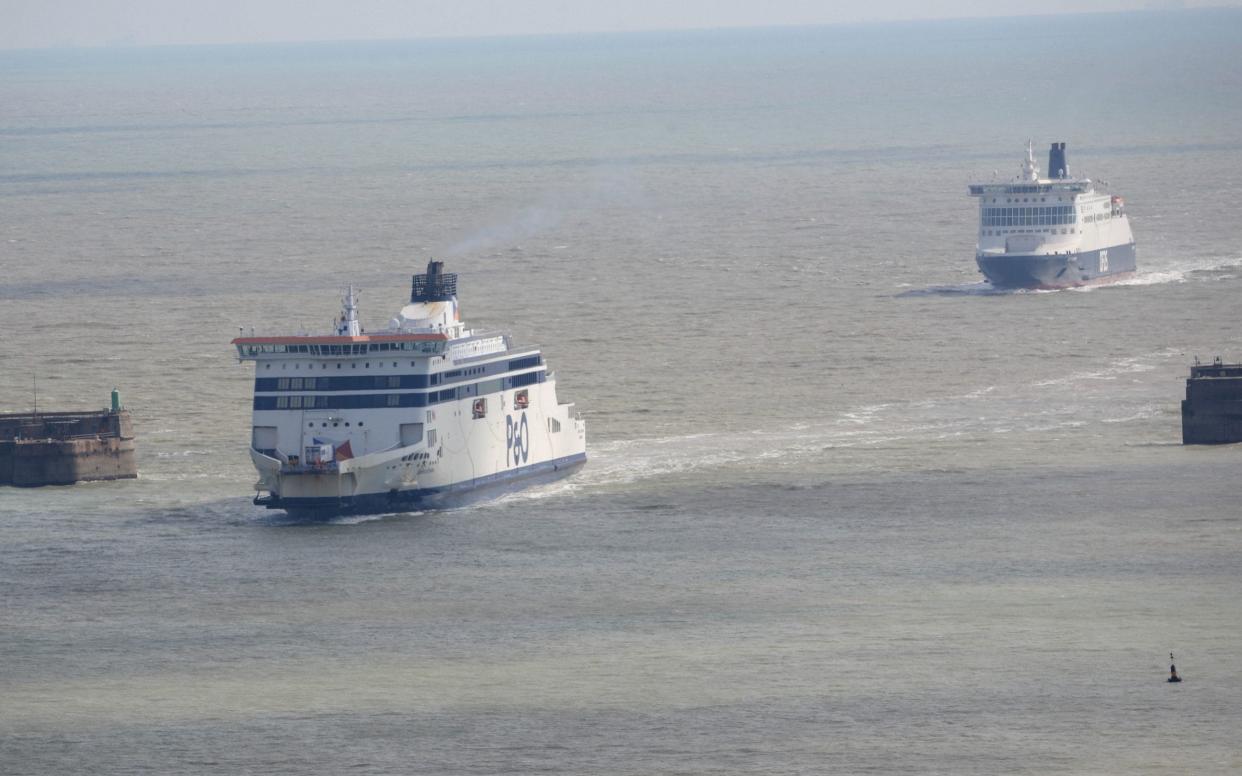'Illegal' £35m state aid for ferries faces legal challenge

The Department for Transport (DfT) is facing court action for allegedly awarding an “illegal” £35 million state subsidy to ferry operators during the coronavirus crisis.
CLdN, one of the biggest freight operators in Europe, is seeking a judicial review of Transport Secretary Grant Shapps’ decision to hand the £35 million to passenger operators Brittany Ferries, DFDS, Eurotunnel, P&O, Seatruck and Stena.
In legal letters sent on Tuesday to the Dft and seen by The Telegraph, CLdN claimed the cash aid was illegal under European law as it was unnecessary and instead provided the passenger ferry operators with a financial competitive advantage over their freight rivals.
Announcing the cash support as Britain went into lockdown, the DfT maintained the subsidy was needed to protect cross-Channel and other “critical” routes run by the six ferry companies which carry both passengers and freight.
It feared that the sharp fall in passenger traffic during the pan-European lockdown would mean the six companies would have to axe routes, threatening vital food and medical supplies to Britain from the continent and Ireland.
However, CLdN lawyers said the subsidy was unnecessary as it and other freight operators were able to continue to bring in food and medical supplies throughout the coronavirus crisis without any need for taxpayers’ support.
Their letter said it was wrong and a misunderstanding of the market by the DfT to claim freight services were under threat when there was more than enough capacity to keep food and medical supplies flowing into the UK.
Instead, it said the freight operators including Eurotunnel had adjusted to cope with the changing market conditions and could “turn on” laid-up ships as required.
It said the subsidy therefore amounted to illegal state support and distorted the market in favour of profitable passenger operators.
P&O’s owner in Dubai paid out £270m in dividends this month shortly before announcing it was cutting over 1,000 British jobs.
According to CLdN’s legal letter, the scheme was designed in a way that allowed participating operators to lower prices to freight customers at the taxpayers’ expense.
It said it meant taxpayers’ money was being used to support inefficient and uneconomic ships that were designed to carry passengers but were now largely bringing in freight.
At the same time, more efficient “pure” freight ferries and container ships were being laid up or under-used.
“There has not been any issue with the supply of freight capacity for goods – in particular food, or medical supplies,” said an industry source.

“In fact, there is ample freight capacity, not least because there has been a significant drop in demand, around 25pc across the board. Where there have been issues, is around distribution.
“It appears that the Government simply responded to a threat from certain operators that critical goods would stop flowing unless they were subsidised, without a decent fact-check.”
A spokesman for CLdN said: “I can confirm we have initiated the process for a judicial review of the Government’s Freight Capacity Subsidy but we are unable to comment further at this stage”.
CLdN operates 30 Ro-Ro vessels with more than 130 sailings a week between Zeebrugge, Rotterdam, London, Killingholme, Dublin, Cork, Gothenburg, Esbjerg, Santander and Porto. It has an estimated 12pc share of the EU/ UK freight market.
The DfT maintained the cash aid was needed to “protect the movement of goods and services in and out of the UK, safeguarding the flow of supplies across the Union.”
Before the cash aid, DFDS demanded that the UK “share in the losses” of operating certain routes. “We don’t want to borrow money to cover losses,” said chief executive Torben Carlsen. “They can write us a cheque, they can buy some of our. . . passenger or freight capacity.”
“The routes from Dover are broken right now because they’re normally depending on both freight and passengers,” he added. “Somebody needs to make sure that model works in this period so we can continue carrying all the freight”.
Rival P&O, which transports about 15 per cent of all goods into and out of the UK, said it was looking for a £150m bailout from the Government.
A DfT spokesman said: “We do not comment on legal proceedings. However we will robustly defend the action we have taken to protect the flow of goods into and around the UK.”


